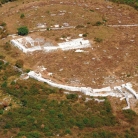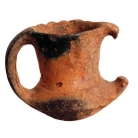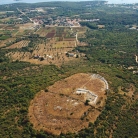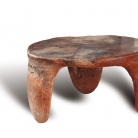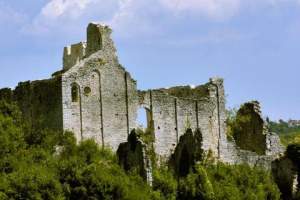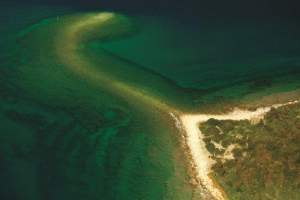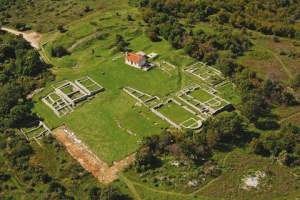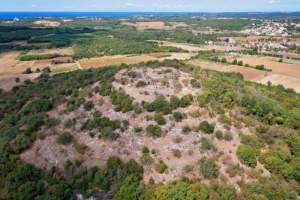Monkodonja
Monkodonja is a Bronze Age settlement located on an elevation and surrounded by fertile plains all the way to the coastline, five kilometres east from Rovinj. The settlement was surrounded by triple walls built in the dry wall technique. Discovered and explored during the 1950s, it has represented the most comprehensive exploration of a Bronze Age settlement in this part of Europe since 1997.
The settlement is located on the plateau, its shape is irregular and it is surrounded by three concentric walls. More than three meter wide and ten meter high walls were built by the dry stone technique. The stone used in the wall construction was dug from the elevation thus providing useful free area. The construction technique and the method have been defined and the urban layout of the settlement read, which gave the social picture of its inhabitants. It has been suggested that about a thousand people lived on the three levels of the settlement, while its very top, almost a true rectangular, held the houses of the highest level of the community. Craftsmen premises were located in the lower parts. Significant differences in the size and the method of house construction were also found. They differed in position, size and the construction method. However, each house had a fireplace.
Houses were separated by passages or streets. Researches claim that the found parts of the ceramic pots came from local workshops basing their findings on found craft traces. However, inhabitants procured dishes from the remote Mediterranean areas. Gradina was inhabited from the 18th until the 12th century BC.












